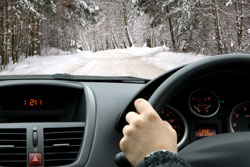Coping with Changes
Many drivers recognise that their driving ability is changing and so change when and where they drive to compensate (this is often called 'self-regulation'). If you find yourself in this situation, you could:

Avoid certain driving situations, times and types of roads that you find more difficult or stressful. Typically, this might mean avoiding driving:
- at night
- during the rush hours
- through large, busy junctions or roundabouts
- on certain types of road (for example, motorways)
Allow more time for journeys so you can drive a little more slowly and not be rushed at junctions
Reduce the amount of driving you do by using buses, taxis and trains more often.
Take regular driving assessments and refresher training to help you to continue to drive, safely, for as long as possible. For more information, see Driving Assessment and Refresher Driver Training
Learn from your mistakes and near misses - Think about situations you found difficult and what you could do differently to make it less likely they will happen again.
Join the Blue Badge scheme, if you are eligible, which provides exemptions from some parking restrictions and access to designated parking spaces if you or your passenger have severe mobility problems. This would allow you to park nearer to your destination. The scheme operates differently in England, Wales, Scotland and Northern Ireland and is managed by local councils.
Change or adapt your car to make your driving easier and safer.
Consider whether it is time to retire from driving. If you travel less than 2,000 miles a year it is often much cheaper to use a taxi rather than maintain and use a car.
Further Information
- Is Your Driving Changing? leaflets and posters intended to help elderly drivers to drive safely, for longer.
- Managing Without a Car (Older Drivers Forum Guide)
- In the Driving Seat (Age UK Guide)








